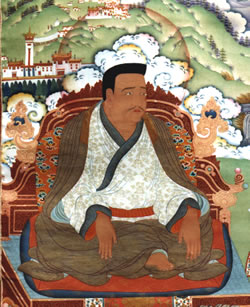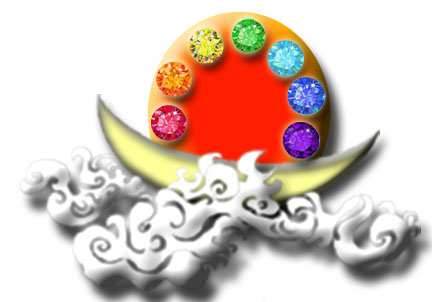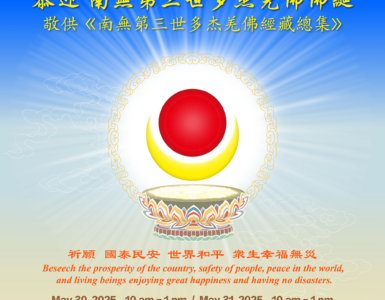
It is unacceptable for a master to make any unreasonable demand on his or her disciple or to demand and take property from that disciple. This has been a serious problem, especially in Tibetan Buddhism. It is true that holy masters of very high levels of realization, may use certain skillful means to test a disciple and enable that disciple to progress, but only a master such as Master Marpa shown above is able to do this. Such a high level of master would not need to test a disciple to see his spiritual potential or future and would only carry out such acts to help the disciple.
Erroneous View No. 7: Acknowledging that a master may make unreasonable demands upon disciples. Even many so-called greatly virtuous ones follow this view. They regard themselves as being so amazing and think their disciples have to meet their unreasonable demands as a manifestation of correspondence of the three karmas. Actually, such so-called greatly virtuous ones have the selfish mind of an ordinary being. They definitely do not possess real supernatural abilities. Such a view is wrong. Perhaps they act according to the erroneous words of ancient virtuous ones. Actually, they are wrong no matter which ancient virtuous one’s dharma rules they act according to. A master does not have the right to make unreasonable demands upon his disciples. If the master is a holy one, he should all the more expound the dharma correctly. He should not cause even a little bit of misunderstanding that could result in physical or mental harm to a disciple. A holy master is all the more obligated to use his morality and selflessness to attract living beings into Buddhism. Anyone who thinks that a master can make unreasonable demands upon his disciples is harboring this erroneous view. However, in the one situation where the master tests the disciple to see the karmic affinity the disciple has with the dharma, the master may use special methods to observe the disciple. However, a fundamental criterion is that the master must do this based upon great compassion for the disciple and the future interests of the disciple rather than the personal interests of the master. Furthermore, the only ones qualified to carry out such testing are holy masters who have reached the top two divisions of the six divisions of vajra power. One example of this is Master Marpa, who tested patriarch Milarepa.
Erroneous View No. 38: Acknowledging that a master may demand and take property from disciples. A master or root master with this view thinks that he may order disciples to give him money when he needs money. He thinks that he may instruct disciples to give him things the disciples own when he needs such things. This is wrong. When a master acts in this way, he is following an evil view. A disciple who finds this acceptable has an erroneous view.
Erroneous View No. 39: Acknowledging that one may use one’s position of lineage holder as a device to obtain offerings from disciples. Some people claim to be the lead successor to a certain sect. For example, one may claim to be the lead successor to the first generation, second generation, or the third generation of the Kagyu sect. One may claim to be the lead successor to a certain generation of the Nyingma sect or Sakya sect. One may claim to be the lead successor to the Geluk sect, the exoteric school of Buddhism, or the Hinayana school. They use their succession to the position of lineage leader as capital to publicize themselves, as a tool for making profit and grabbing wealth and property from others, and as a means to demand offerings from disciples. All of these are wrong. These are not the acts of Buddhas or Bodhisattvas. They are not masters of great virtue. They are false holy ones in the guise of holy masters.




Add comment